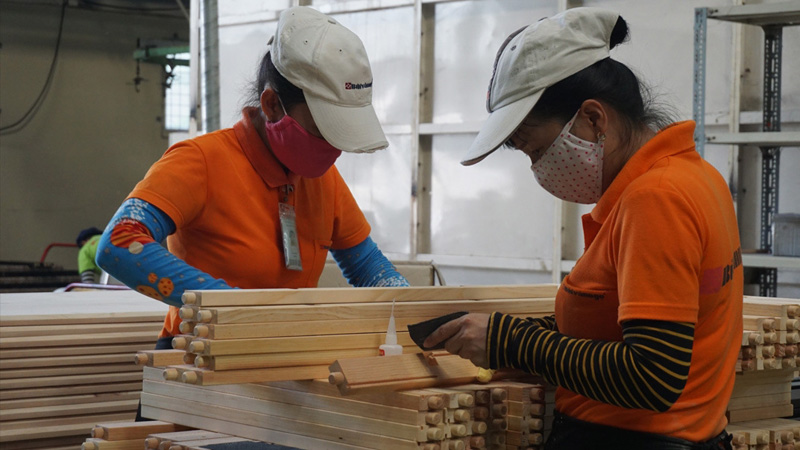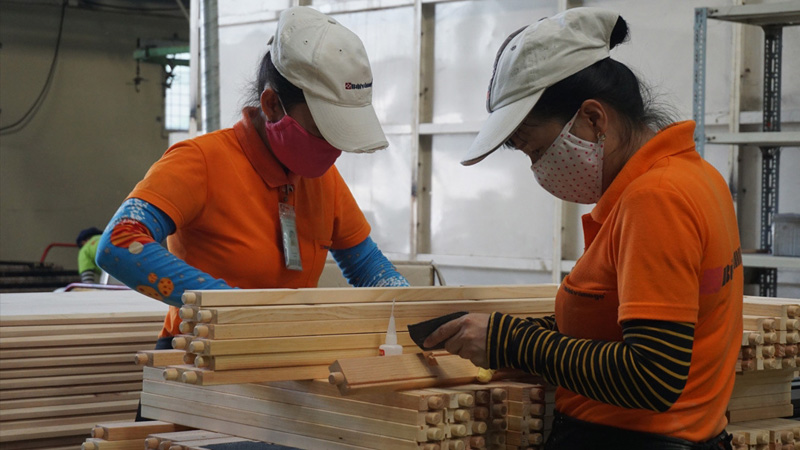



Vinanet forecast that Vietnam's exports of wood and wooden products will increase by 13%-15% in the second half of 2018
According to the Vietnam Industry and Trade Information Centre (Vinanet), FDI firms reported over US$1.78 billion worth of export revenue from wood and wooden products in the first six months of this year, up 4.8% over the same period last year and equivalent to 43.2% of the total export revenue of wood and wooden products.
The US, China, Japan and the Republic of Korea (RoK) were the largest wood importers of Vietnam in the first half of this year, accounting for 78.5% of the total export value of wood and wooden products.
During the six-month period, Vietnam earned US$1.6 billion from the exports of wood and wooden products to the US, an annual increase of 12.48%, which also occupied 41% of the total export revenue of wood and wooden products.
China came in second with export revenues of US$555.6 million, accounting for 13.4% of Vietnam's total export revenue, a slight rise of 0.02% over the same period last year.
Meanwhile, the markets that witnessed sharp increases in the export value included Malaysia (2.1 times higher), RoK (up 52.8%), France (up 24.8%), the US (up 12.5%), and Australia (up 14.8%).
However, the exports of wood and wooden products to Hong Kong (China) and Austria fell sharply in the first half of 2018, down 44.68% and 35.56% respectively.